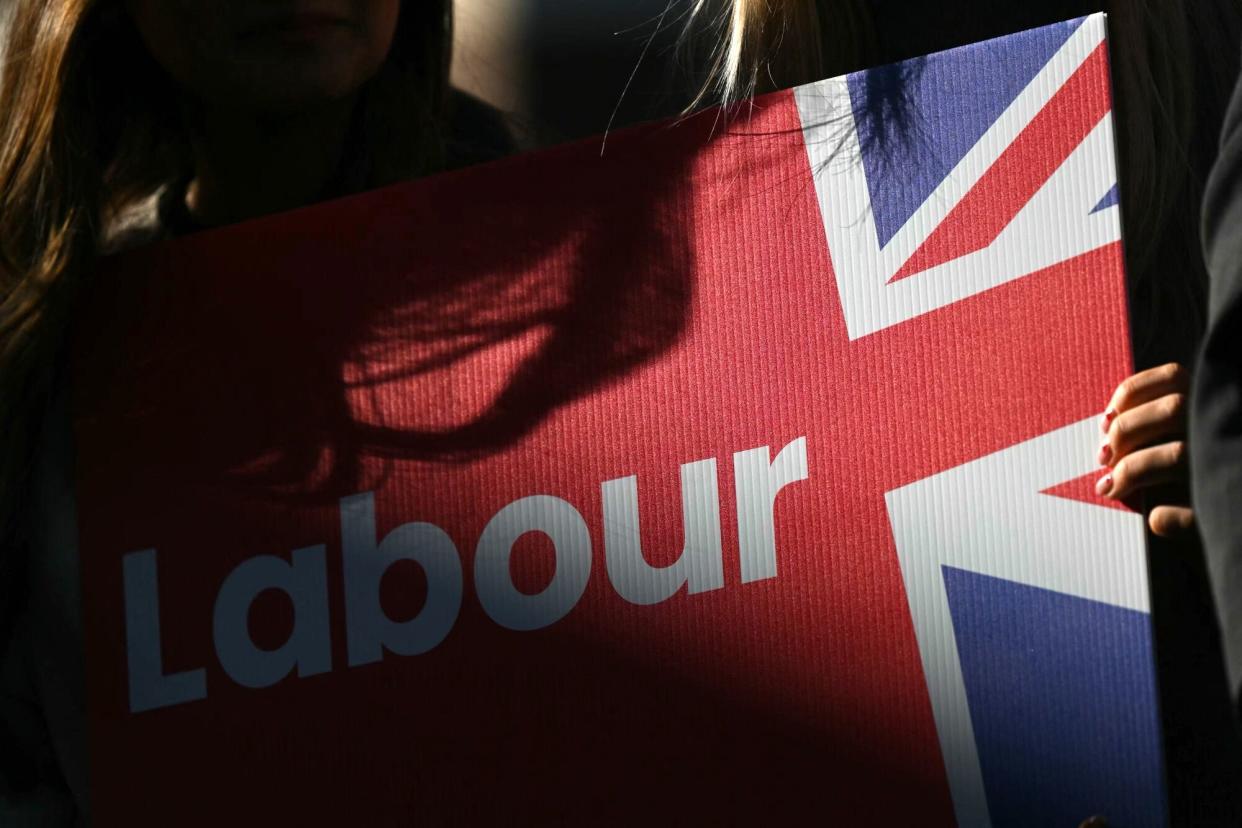Labour Borrows Hunt’s Playbook to Attack Tory Spending Plans

(Bloomberg) -- The UK election campaign turned into a battle of contested economic dossiers, as Labour accused the Tories of risking a repeat of Liz Truss’s market turmoil — a direct response to the Conservatives’ disputed claim that Keir Starmer’s party has a £40 billion hole in its spending plans.
Most Read from Bloomberg
World’s Largest Nuclear Plant Sits Idle While Energy Needs Soar
‘Not Gonna Be Pretty:’ Covid-Era Homebuyers Face Huge Rate Jump
Warning Signals Are Flashing for Homeowners in Texas and Florida
Insurers Sink as UnitedHealth Sees ‘Disturbance’ in Medicaid
In an impromptu press conference that had distinct echoes of a similar political intervention by Chancellor Jeremy Hunt this month, Labour’s Darren Jones said the Tories’ economic plans would require a £70 billion increase in borrowing, which would in turn risk interest rates rising by 2.5 percentage points.
“Liz Truss’s kamikaze budget is now being followed by Rishi Sunak’s kamikaze manifesto,” said Jones, Labour’s shadow secretary to the Treasury. Standing against a backdrop that read “Conservatives’ Interest Rate Rise,” Jones said the Tory plans are “economy-crashing, family-finance-destroying madness.”
When Hunt spoke on May 17, his backdrop was “Labour’s Tax Rises.”
Labour said it had costed the Tory plans in a document, which was styled and formatted like an official treasury budget, including Sunak’s recent pledges to bring back national service for younger Britons and a tax break for pensioners.
Yet central to Labour’s calculations was its assumption that the Conservatives would immediately abolish national insurance, a payroll tax, if it stayed in power. But Sunak’s Tories have only said they’d pursue that goal when it’s affordable to do so, and haven’t put a specific time-frame on it.
The Labour document also assumed an immediate abolition of inheritance tax costing £10 billion per year, even though the Conservatives have yet to formally commit to such a promise.
Asked whether Labour was trying to scare voters with a “Project Fear” approach on the economy, Jones defended the sums.
“This document today is merely presenting Conservative Party policy that has just been announced in the last week,” Jones said. “Because people have suffered the cost of unfunded commitments from the Conservatives before, voters will be worried about that.”
To be sure, it was a case of Jones hitting the Conservatives with their own play book. Hunt had said this month that a Labour government would inevitably raise taxes like VAT, national insurance or income tax — despite repeated denials from Starmer’s party. Hunt’s dossier included assumptions made by Tory officials, and Labour called their analysis “nonsense.”
The Conservatives also hit back at Jones’s analysis, describing it as “pathetic, desperate stuff.”
The interventions by Hunt and Jones show how the parties are trying to draw the economic battle lines ahead of the July 4 vote.
The Tories want to present Labour as untrustworthy steward of the economy and the public finances. For Labour, the aim is to remind voters as much as possible about the chaotic tenure of Truss, and try to capitalize on polls showing that after 14 years of Tory governments, it’s now Starmer’s party that is more trusted to turn the country’s fortunes around.
Still, with the next administration facing the most painful fiscal choices since the 1950s, the influential Institute for Fiscal Studies has accused both parties of not being honest about the stark choices facing the next administration.
Most Read from Bloomberg Businessweek
Disney Is Banking On Sequels to Help Get Pixar Back on Track
Why Dave & Buster’s Is Transforming Its Arcades Into Casinos
The Secret Ozempic Recipe Behind Novo's Race to Boost Supplies
©2024 Bloomberg L.P.



